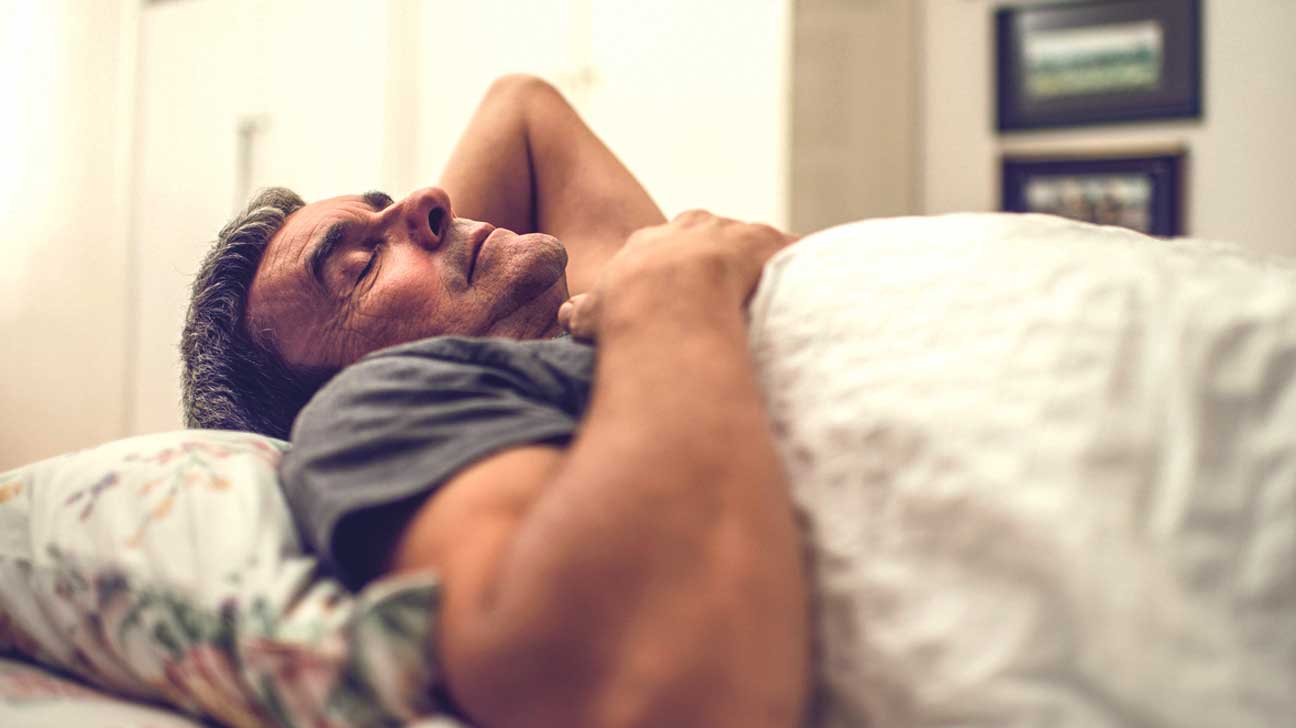Sleep Allows Younger People to Hit ‘Save Button’ on Memories
Researchers say as we get older, we lose those cells in the brain that help us retain memories as we sleep. Can anything be done about the problem?

That’s Hamlet, from the famous “to be or not to be” soliloquy.
Shakespeare’s prince is agonizing over his fear that even death will not be enough to end the torment of his dreams.
And now we have a new factor to disturb our sleep.
A recent study concluded that the connection between sleep and the formation of memories starts breaking down as we age.
As we get older, the brain is unable to keep new memories while we sleep as the brainwaves become unsynchronized.
“To die, to sleep — to sleep, perchance to dream — ay, there’s the rub, for in this sleep of death what dreams may come.”
Shakespeare’s prince is agonizing over his fear that even death will not be enough to end the torment of his dreams.
And now we have a new factor to disturb our sleep.
A recent study concluded that the connection between sleep and the formation of memories starts breaking down as we age.
That’s because as we age, we lose brain cells in the deep-sleep generating part of the brain, according to Matthew Walker, a professor of neuroscience and psychology at the University of California Berkeley and a co-author of the study.
“You can’t cement those memories into the brain so you end up forgetting the next morning rather than remembering,” said Walker, the co-founder and director of the Center for Human Sleep Science and author of the new book “Why We Sleep: Unlocking the Power of Sleep and Dreams.”
“As you lose those brain cells, you can’t generate that same depth and quality of sleep, nor can you synchronize those brain waves either,” Walker told “CBS This Morning” in an interview last month.
The study included adults aged 65 and older.
This is the age at which a marked change in the synchrony of brain rhythms has been observed.
But don’t breathe a big sigh of relief just yet.
People can experience deep-sleep declines beginning as early as their 30s or 40s.
Those synchronized brain waves are believed to enable the “information transformation necessary for long-term memory retention.”
What can be done about it
Walker and his colleagues are working to develop new electrical brain simulation technology.
It would allow the brain to resynchronize brain waves and help restore deep-sleep quality to older adults.
The hope is that it could salvage some aspects of learning and memory.
“I think sleep has an image problem,” Walker said. “I think we chastise people who get sufficient sleep. We give them this label of being slothful or lazy and that has to change.”
He suggested this is a place for government action.
“When was the last time that any government [in a] First World nation actually had a public health campaign regarding sleep? We have them for drowsy driving. We have them for alcohol, drugs, diet,” Walker said. “I think it’s necessary in all developed nations and no one is doing it. We need that movement.”
The consequences of less sleep
So, what’s the big deal about losing a little sleep?
Not getting enough sleep can have a wide range of negative impacts on health.
People who sleep six hours a night or less are also more likely to have a heart attack or stroke.
Dr. Rita Aouad, a sleep medicine specialist at The Ohio State University Wexner Medical Center, has seen it all.
“The biggest mistake people [who don’t sleep well] make is having an electronic device in the bedroom,” she told Healthline. “The bedroom should be reserved for sleep and romance.”
Aouad suggested turning everything off an hour before bedtime.
“If you’re having trouble falling sleep, read a book,” she said.
The idea is to avoid the light from electronic devices.
“Light can affect melatonin production,” she said, noting that a chemical cascade can keep you awake longer.
She’s not opposed to naps, but keep them short and do them early.
“A power nap is fine, no more than 20 minutes,” she said. “You shouldn’t be groggy when you get up.”
Snoring and sleep apnea
Sleep apnea can also reduce a person’s bedtime slumber.
Some symptoms may be bothersome, such as snoring or gasping for breath.
Obesity, which makes the airway smaller, may be another factor.
Postmenopausal women are at higher risk.
The only definitive test for sleep apnea is a sleep study, which can be done at a sleep lab or at home.
The treatment is often a CPAP machine, which provides continuous positive airway pressure to make it easier to breath.
Breathing problems and possible sleep apnea can also be noticed by dentists.
Gene A. Sambataro, DDS, FAGD, is the director and clinician at the Julian Center for Comprehensive Dentistry in Maryland and the author of “Stop the Snore.”
“Dentists are always looking down people’s throats,” he explained to Healthline.
As a result, they notice things such as restricted airways or grinding teeth.
Combined with a patient questionnaire on sleeping habits, the information may lead to a talk about sleep apnea.
In order for patients to get help from their insurance in paying for a sleep apparatus, the diagnosis must be made by a member of the American Academy of Sleep Medicine.
But the conversation may start in the dentist’s chair, Sambataro said.




